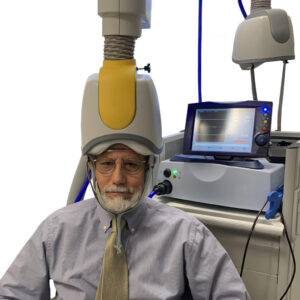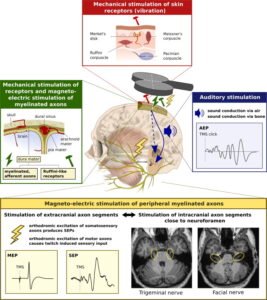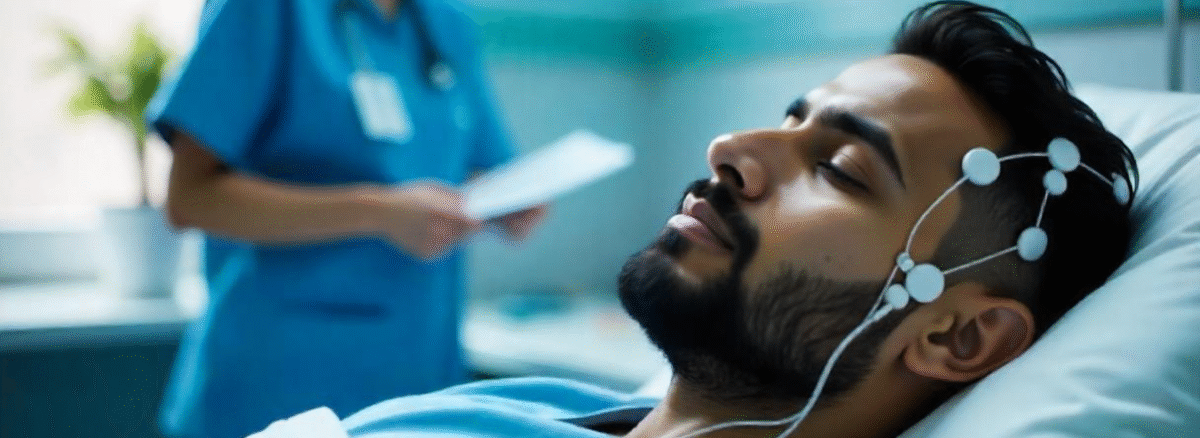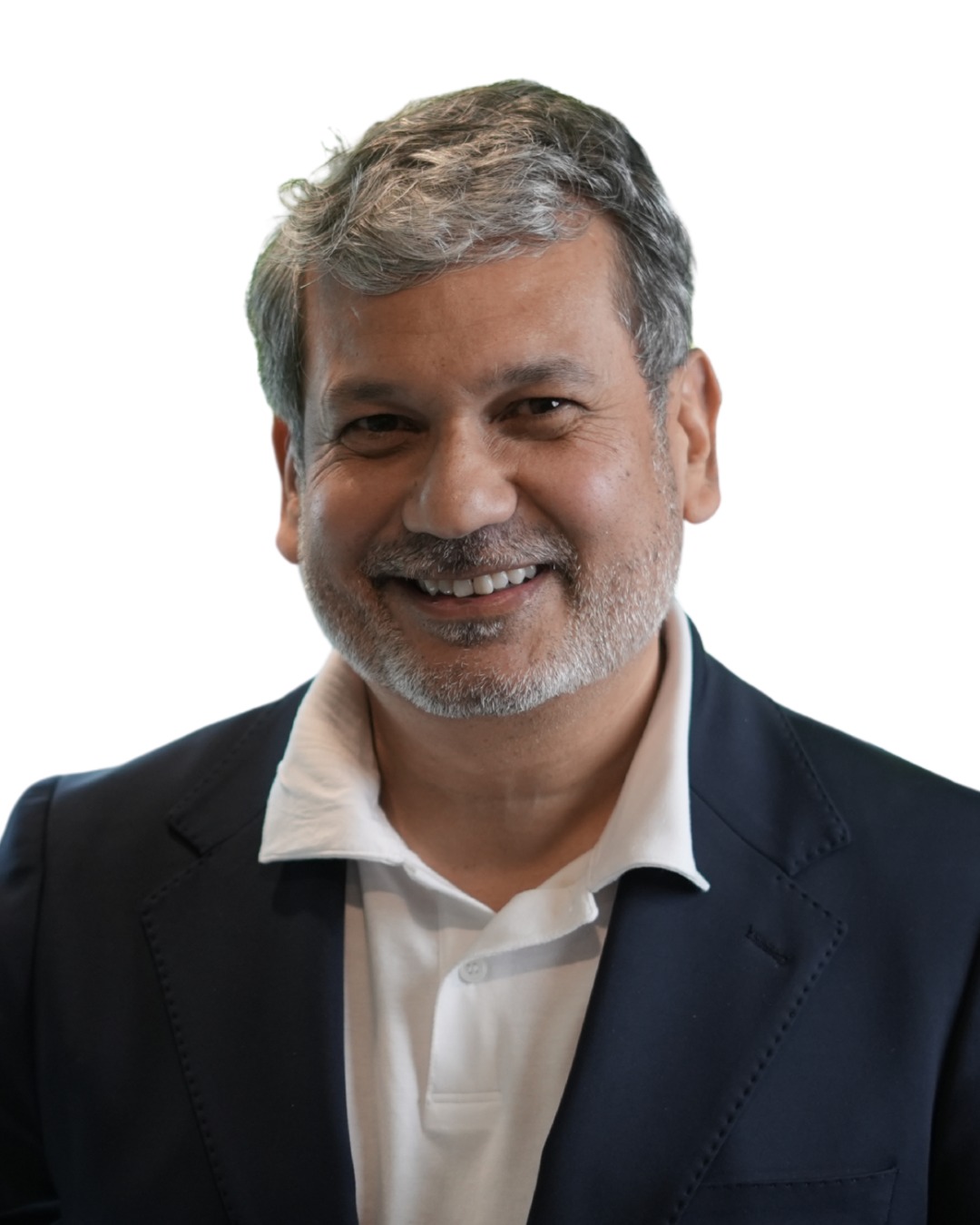Introduction
Imagine fighting depression for decades with minimal or no help from pills or counseling. For millions, this is a bitter reality. However, the new technologies are presenting a hope: among which, Transcranial Magnetic Stimulation (TMS) tops the chart.
Transcranial Magnetic Stimulation is a revolutionary, no-drug brain stimulation technique that is changing the tide for mental health treatment. With directed magnetic pulses, TMS triggers certain areas of the brain linked to mood regulation and intellectual function.

With this blog, the aim is to explain and understand Transcranial Magnetic Stimulation to the core. It will also explain how it works and who it helps.
What Is Transcranial Magnetic Stimulation?
Transcranial Magnetic Stimulation (TMS) is a surgery-free technique of brain nerve cell stimulation using magnetic fields. It’s not the implantation of something or surgery. It simply involves a head coil that puts short bursts of magnetism into the brain that affect brain function.
This procedure targets primarily the prefrontal cortex, the area that is in charge of mood control (Siebner et al., 2022). In people suffering from major depressive disorder, TMS is used to re-activate the neural circuits that govern mood and behavior. This treatment is an outpatient, nonpainful procedure that allows patients to resume their daily activities immediately after a treatment session.
TMS is now FDA-approved for the treatment of depression and is being administered more frequently in psychiatric clinics worldwide (Koutsomitros et al., 2021). It’s applicable in the case of people who do not respond to antidepressants or psychotherapy. Thus, it is considered a wonderful addition to mental health treatment therapies.
How TMS Therapy Works
So, just how does TMS therapy work?
During a session, the patient reclines in a chair and a technician holds a magnetic coil against his head, usually over the left prefrontal cortex. The coil sends repetitive magnetic pulses, therefore the name repetitive Transcranial Magnetic Stimulation (rTMS), which go through the skull painlessly to energize areas of the brain.
Each pulse is only a few milliseconds long, however, during a course of a session hundreds or thousands are sent through the brain. A patient needs to go through five such sessions per week and this goes on for up to 4-6 weeks. Each session may last about 20-40 minutes.

(Source: Siebner et al., 2022)
It is hoped that it will boost or stabilize neural function, enhancing mood, concentration, and control over emotions. Most patients notice their improvements in two weeks, although outcomes are variable. Because it is a non-invasive brain stimulation treatment, sedation, recovery time, and disruption of lifestyle are not required.
Patients can drive home themselves, resume work, or simply resume their day as usual, and TMS is an easy, patient-friendly alternative in the field of mental health therapy.
Applications: TMS for Depression and Beyond
Transcranial Magnetic Stimulation is perhaps most well-known for treating both depression & it’s treatment-resistant version, where patients have not responded to therapy or medication. For such patients, TMS depression treatment provides an alternative path to hope and recovery.
For TMS therapy potential candidates, the awareness of what the process involves can ease anxiety. The process may begin with consultation from a Transcranial Magnetic Stimulation specialist or a neurologist and/or psychiatrist. Researchers feel that by modifying pulse intensity and frequency, TMS may be tailored for unique brain patterns, further expanding its horizon.
What is most attractive about TMS is that it is a drug-free treatment option, frequently with fewer side effects than standard psychotropic drugs. With more clinical trials supporting its efficacy, TMS therapy is becoming the standard in cutting-edge mental health therapy practices globally.
Advantages of TMS Treatment
Among Transcranial Magnetic Stimulation’s most powerful attractions is that it is non-invasive and drug-free. Clients who have been exposed to unacceptable side effects or limited therapeutic gain from antidepressants find their TMS treatment a relief.
In contrast to medications that affect the whole body, TMS therapy affects targeted regions of the brain and therefore causes fewer systemic side effects. Sessions are usually administered while the patient is awake and alert, without the need for sedation or downtime.
Clinical trials have indicated that TMS for depression is able to produce considerable improvement in mood, particularly among those with treatment-resistant depression. It also has the benefit of being reusable—in other words, those who regress can again be treated with therapy.
On balance, advantages of TMS are better mood, enhanced concentration, greater energy levels, and less anxiety, and thus it is an exciting addition to mental health therapy.
Safety and Side Effects of TMS
As with any medical treatment, Transcranial Magnetic Stimulation is not completely without danger—but it is generally well tolerated. Most side effects are minor and temporary, which makes TMS therapy one of the safest choices for brain stimulation treatment.
Side effects such as headaches, tenderness of the scalp at the site of treatment, and dizziness are normal during and shortly after the procedure. They usually resolve with continued treatment. Twitching of the facial muscles during stimulation also happens in some patients, and it is harmless and transient.
Severe side effects, such as seizures, happen only extremely rarely—especially when treatment is delivered by skilled personnel using standard procedures. TMS treatment, though, is best avoided in people with epilepsy history or metal near the head.
Generally, TMS is a safe and effective method of non-invasive brain stimulation for the treatment of depression and other disorders.
Is TMS Effective? What the Research Says
Real-world data and clinical research both prove the effectiveness of Transcranial Magnetic Stimulation, especially in the treatment of major depressive disorder. Studies indicate that around 50%-60% of the treated patients with treatment-resistant depression showed a significant reduction in symptoms (Sackeim et al., 2020).
In contrast to conventional antidepressants, which can take weeks to be effective, and often have undesirable side effects- TMS therapy starts producing effects after only a few weeks of regular treatment. Patients feel more emotionally stable, energized, and mentally sharp.
The expanding evidence suggests broadening the indication for TMS for depression and into others like OCD, PTSD, and even Alzheimer’s disease. While outcomes differ from individual to individual, the scientific community is in agreement: Transcranial Magnetic Stimulation is an effective and promising treatment in today’s mental health treatment world.
What to Expect in a TMS Treatment Journey
For TMS therapy potential candidates, the awareness of what the process involves can ease anxiety. The process may begin with consultation from a Transcranial Magnetic Stimulation specialist or a neurologist and/or psychiatrist. They will examine past medical history, current symptoms, and fit for the treatment.
After approval, treatment begins with a mapping session, where the specific brain target and stimulation dose are established. The progress is followed up throughout, and most patients will start feeling shifts in mood or energy levels during the second or third week.
Follow-up may be in the form of booster treatments or additional therapy, depending upon the reaction of the patient to Transcranial Magnetic Stimulation therapy.
Conclusion
Transcranial Magnetic Stimulation is not just technological innovation; it’s a beacon of hope for those with treatment-resistant depression and other challenging mental diseases. With its drug-free, painless approach and growing success rate, TMS therapy is bringing about a new model for mental illness therapy.
If you or someone you know is searching for an alternative to traditional treatments, explore if TMS treatment is available to you. Ask a qualified mental health practitioner or go to a certified clinic like Mind Brain Institute providing Transcranial Magnetic Stimulation to start your road to recovery.
Dr. Anuranjan Bist stands as a pioneering figure in the field of mental health, seamlessly blending traditional psychiatric methods with holistic wellness practices. With a profound understanding of the human mind and body, Dr. Bist has redefined therapeutic approaches by integrating Transcranial Magnetic Stimulation (TMS) and Ketamine therapy with ancient yoga techniques, showcasing his innovative spirit and dedication to comprehensive care.


